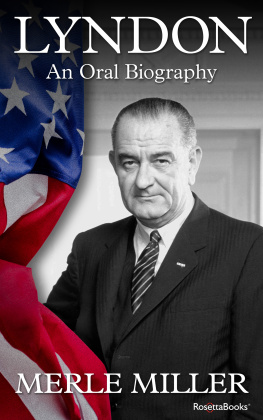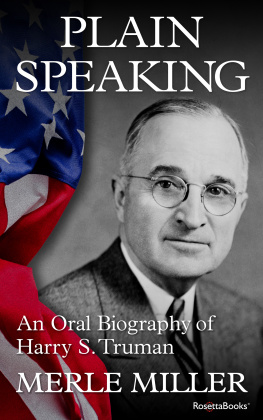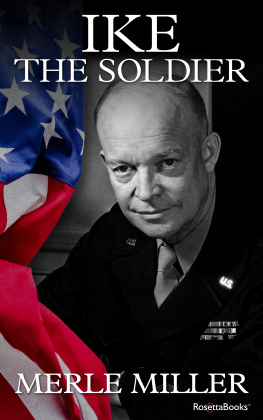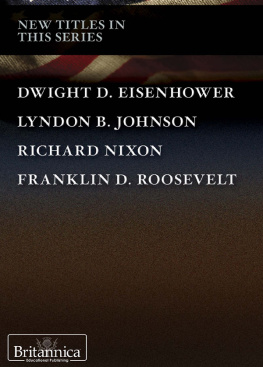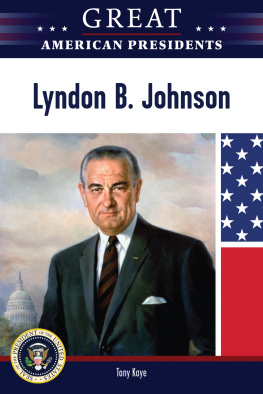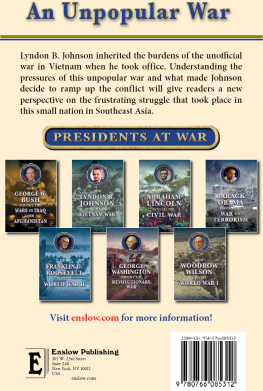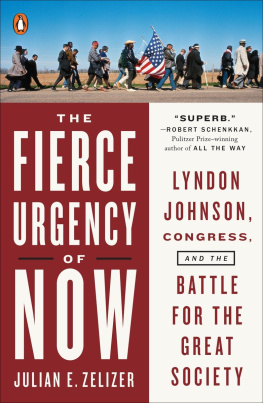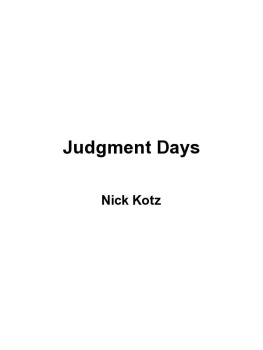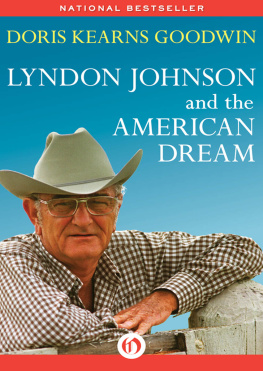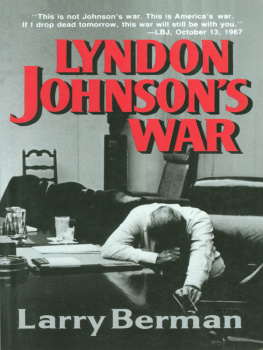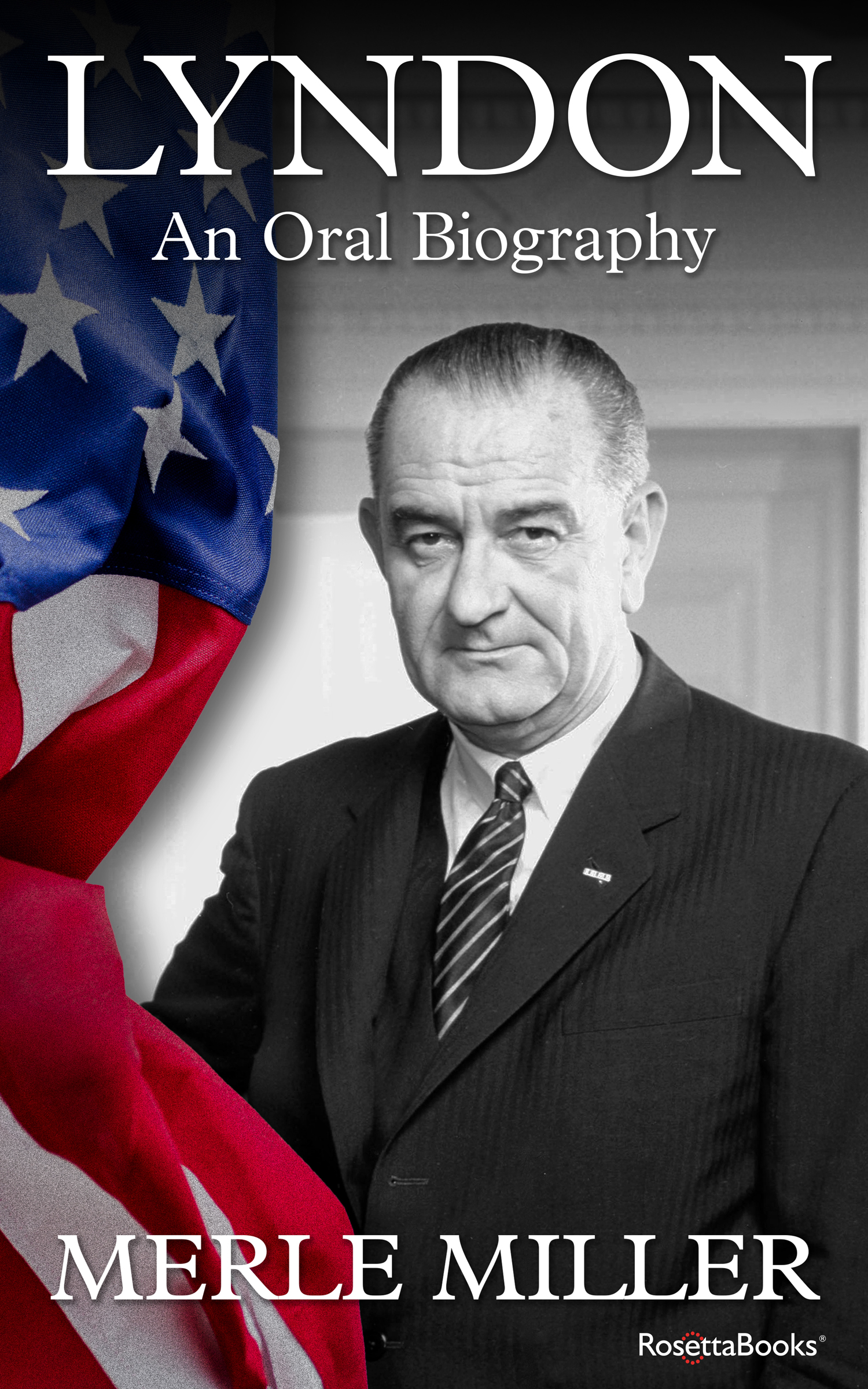Lyndon
An Oral Biography
Merle Miller

Lyndon
Copyright 1980 by Merle Miller
Cover art and Electronic Edition 2018 by RosettaBooks LLC
All rights reserved. No part of this book may be used or reproduced in any form or by any electronic or mechanical means, including information storage and retrieval systems, without permission in writing from the publisher, except by a reviewer who may quote brief passages in a review.
Cover jacket design by Lon Kirschner
ISBN e-Pub edition: 9780795351297
For my friends David and Carol
Contents
INTRODUCTION
Oral History is a relatively new way of dealing with the men and women and the events of the recent past. It's a particularly good way of dealing with someone like Lyndon Johnson, who almost never stopped talking himself, and about whom an extraordinary number of people had a great deal to say. I first heard of Oral History thirty years ago when a group of scholars at Columbia University, chief among them the historian Allan Nevins, decided that a collection of taped interviews with people who had memories of that past and of the people who shaped it would be a valuable addition to the historical record.
I did not read an Oral biography until 1969 when I first encountered T. Harry Williams' biography of a man much admired by Lyndon Johnson, Huey Long, the Louisiana governor and senator. Long's motto was, "Every man a king," and President Franklin Roosevelt was afraid of him and of his possible strength in the 1936 presidential election in which Long said he would be a candidate. But he was shot and fatally wounded in Baton Rouge, Louisiana, in September 1935. Dr. Williams, a professor of history at Louisiana State University in Baton Rouge, wrote that witnesses remembered Long's last words as being, "God, don't let me die. I have so much to do." How like Lyndon Johnson.
In the Preface of Huey Long, Dr. Williams stated, "I believe that some men, men of power, can influence the course of history. They appear in response to conditions, but they may alter conditions, may give a new direction to history. In the process they may do great good or evil or both, but whatever the case they leave a different kind of world behind them. Their accomplishment should be recognized. I believe that Huey Long was this kind of man."
Dr. Williams thought that Lyndon Johnson was "this kind of man," and at the time of his death in 1978 he was working on an Oral History of Johnson. We talked to many of the same people.
Another pioneer in the field of Oral History was the esteemed, certainly by me, Studs Terkel of Chicago, whose Oral History, Division Street: America was published in 1967. In it seventy people talked not only about Chicago but about American life everywhere. In 1970 Terkel published the immensely popular Hard Times, An Oral History of the Great Depression, and more recently there was Working, People Talk About What They Do All Day and How They Feel About What They Do.
One reason I have felt a particular affinity for Studs is that, like me, he appears to have no mechanical aptitude, none, and when his tape recorder broke down, as tape recorders not infrequently do, he swore at it and, like me, on occasion kicked it. Also like me, Terkel has never been able to drive a car, ride a bicycle, roller-skate, swim or dance.
Reluctant tape recorders are not the only problem with Oral History. There is the interview itself and the preparation for it. With David W. Elliott's assistance some Oral Historians at the Lyndon Baines Johnson Library in Austin say that the proper preparation for an interview takes a minimum of three days. One has to know as much as possible about the subject involved and about the interviewee's relation to it and, in this case, to Lyndon Johnson. And one has to ask the right questions, listen carefully to the answer and, equally important, hear the answer. Hearing is not always easy because the interviewer is at the same time phrasing in his mind the next questionand, of course, keeping the capricious tape recorder in order.
There is an Oral History story, no doubt apocryphal, about an Oral Historian interviewing Alice Roosevelt Longworth. Mrs. Longworth was saying, "And, of course, on Tuesday afternoon we all had to leave the White House while my father entertained his mistress."
Oral Historian: "Mrs. Longworth, we were discussing the Panama Canal. I wonder if you could clear up your father's views on the building of locks on the canal."
I tell you, you've got to hear.
This book was more than five years in the making. It involved thirty-nine trips to Washington, D.C., trips to New York, Chicago, and numerous cities and towns in Texas, Georgia, and California. There were 180 personal interviews; researchers conducted several more; two Texas historians, Ted Gittinger and Gary Gallagher, were particularly useful. I interviewed many people several times. Some 276 Oral Histories at the Lyndon Baines Johnson Library were consulted as well as nine others in an Interior Department Oral History Project at Johnson City; eighty-nine at the John F. Kennedy Library, and several (see bibliography) at other presidential libraries. Material at the Franklin D. Roosevelt Library in Hyde Park, N.Y., was especially helpful.
Lady Bird Johnson proved enormously helpful in opening a great many doors that previously had been closed; she opened many of them without mentioning it to me and never once asked to see any part of my work.
It was a long journey, exploring the history of Lyndon Johnson; it was like exploring a continent, maybe two continents and a couple of ocean beds as well.
He wasiswithout doubt one of the most complex, fascinating, difficult, colorful personages in American history. There may have been other Presidents like Johnson in American history. Andrew Jackson comes readily to mind, but he was a simple man by comparison. I don't think we've ever seen the likes of Lyndon Johnson before, and I doubt we will ever again.
PROLOGUE
Harry McPherson: "Lyndon Johnson was a true sophisticate. I know that's what most people think he wasn't, but they are wrong. He was an enormously sophisticated man about life, about what makes things happen, what causes people to do what they do."
Wilber J. Cohen: "Psychiatrists would say that your personality is always internally consistent, but I found Lyndon Johnson was a man of such tremendously different kinds of characteristics that it's difficult, perhaps impossible, to grasp all of his personalities.
"I went down to the Ranch with John Gardnerthis was in 1966 or 1967and after we finished our business we went out and rode around the Ranch. He started to tell us in the most vulgar kind of language about the breeding of cattle, referring to all sorts of sexual characteristics of the animals and of people. How you bred cattle, and so on. I knew nothing about cattle, so I just listened. But it was vulgar.
"About an hour later as the sun went down, we reached a hill and he stopped the car. We watched the sunset over the mountains, and he started talking what was really pure poetryabout the land, about the Hill Country, about the sun, about the seasons, about his hopes and aspirations for people. Pure poetry.
"Now, there within one hour was a man being three different things. First, he dealt with our business problems, the president of the United States dealing with matters of momentous national policy on an executive planning basis. Then he was a small-time cattle breeder in the way any two-bit farmer is who wants to get better cows or calves. And then, a half hour later, the same man was talking in the most emotional terms about the earth and the world and the incomprehensibilities of life. He was like a combination of Boccaccio and Machiavelli and John Keats.

